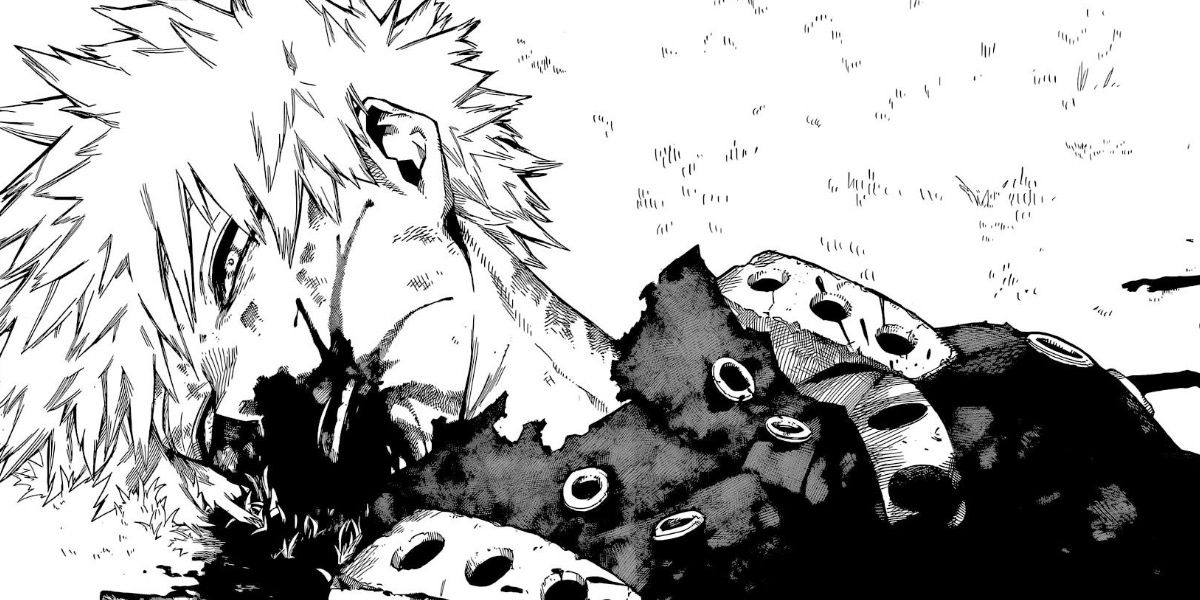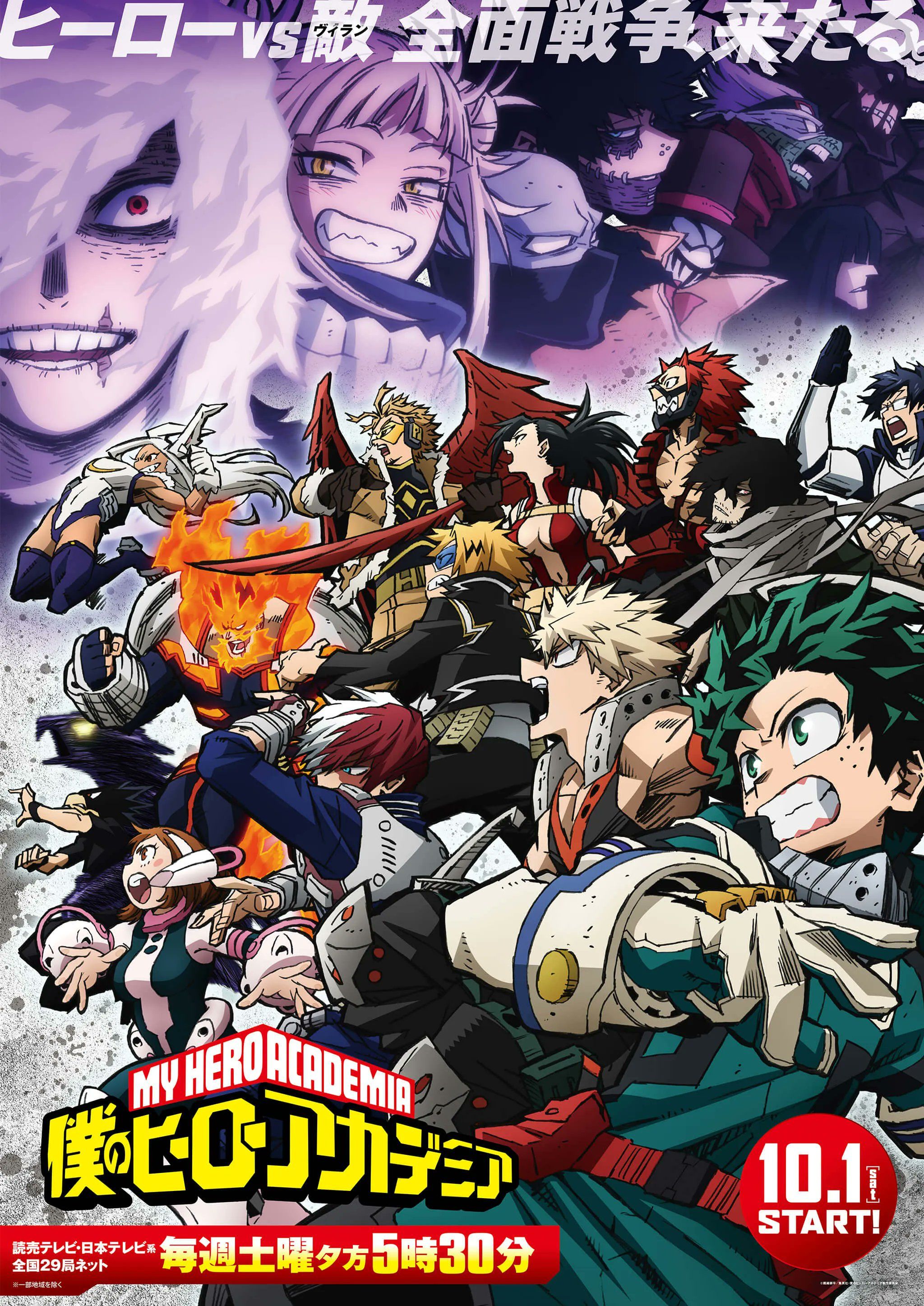Death is part and parcel with shōnen anime in many ways. There needs to be some level of consequence for what happens and there is a lot that happens in shōnen in particular. However, death does not always manage to stick when it comes to anime in particular. Much like Western comics, a suitably popular character can escape the reaper's icy grip with enough fan support and a certain level of written creativity. Dragon Ball has the eponymous Dragon Balls as their get out of death free card and a good number of other anime have their MacGuffins and contrivances in order to shoo away the void.
My Hero Academia, on the other hand, tends to lean more into realism with death. Several characters have died, some brutally, and have stayed very much dead despite its roots in X-Men as a major inspiration. Sir Nighteye and Midnight both met their ends, along with other characters in multiple arcs. Best Jeanist's revival was explained away with a body double but, thus far, the franchise has been pretty good at sticking to its guns. Except for one specific character: Katsuki Bakugo. Being that he is the most popular character in the franchise, it makes sense that his death would make waves, but doing it only to immediately undo it removes the stakes entirely to the point where killing him at all felt cheap in retrospect.
Why Is Bakugo More Popular Than Deku?
Katsuki Bakugo is the rival character for Deku in My Hero Academia. This puts him in step with Vegeta and Sasuke, making him one of the most influential and important relationships in Deku's life. Shōnen rivals are the characters that tend to draw the audiences to them. They are consistently the most popular characters in their series, often rivaling their protagonist for that coveted number one spot. Bakugo has been the most popular character in the series and even has the numbers as proof; he's consistently been the number one in popularity polls. But it can feel a little strange that these characters tend to be the ones that audiences love the most. After all, fans are supposed to root for the main hero, right? So why does this happen, and why can't Deku seem to gain as much traction as Bakugo?
Part of the reason these rival characters tend to get this much attention from audiences is exactly because they are out of focus. They aren't the character that the audience is glued to as their focal point, so there is more of a sense of mystery. These are characters who are both an obstacle and a fellow in arms. There is an innate dichotomy there that makes this particular character archetype into something just more intriguing than the typical protagonist. These characters are also often the ones with some of the biggest moments of character development. Vegeta, for example, spends the entirety of Dragon Ball Z changing from the hyper-violent and villainous Prince of All Saiyans into a family man with some rough edges. By the time of Dragon Ball Super, Vegeta was almost a sitcom dad with an egotistical streak. The character also managed to escape permanent death pretty early on because fans were so fond of him, but he didn't escape it later. His death and resurrection as a result of Namek ended up putting him on a path of redemption.
Bakugo is also a character who goes through a ton of development, but that isn't even the main reason for his popularity. Beyond being the typical rival, he also is a staple of Deku's childhood and has a lot of complex motivation. Bakugo's inferiority-superiority complex is one of those things that exists in pretty much any anime rival, but he manages to take it to an explosive extreme while also being inherently the good guy. Unlike the more morally ambiguous Sasuke or Vegeta, Bakugo is established pretty early on as being uninterested in villainy at all. He is just as big of a hero as Deku, while also being a bigger personality. His growth is related to his own sense of success and evolving into a more healthy perspective, as opposed to Deku who doesn't have a lot of change happen to him in his personality. Bakugo is shown growing and becoming more open, as if his redemption was about who he is as a person. This, of course, had the side effect of making him the most popular character in the show with very little competition, so killing him would obviously send waves through the fandom. Sadly, the series was not brave enough to stick to its guns.
Death Has No Meaning In My Hero Academia Anymore — To Its Detriment

Killing a major, popular character will always be a bit controversial. Some series revel in this idea, like JoJo's Bizarre Adventure and Game of Thrones. There is something of a hand-wringingly evil sense when characters like these die, almost as a way to really hurt a reader. But, sometimes, that level of pain is needed for a narrative. It makes things feel real, like there are consequences for actions and no one is truly safe. Death offers an innate sense of danger. Series like Dragon Ball end up losing that tension entirely, meaning that other threads of tension need to be created. Up until Bakugo, My Hero Academia had the reaper offering up that idea; anyone could possibly be killed and being a hero is an incredibly dangerous job.
During the battle with Shigaraki, Bakugo is ultimately killed when his heart is literally ripped to shreds. Controversial or not, killing this particular character makes a wild statement. It's a bold move — a move that is almost immediately undone in one of the most strangely unsatisfying ways possible. Bakugo is ultimately resurrected by Edge-Shot, a pro-hero who can fold his body so thin that he can pretty much become string. He stretches himself thin to the point of death and, using his knowledge of the body, becomes a new heart for Bakugo. This is, inherently, sort of dumb. At no point is it shown that Edge-Shot could even do this, and it raises a whole host of questions about how this could possibly work anatomically. Beyond that, it is even shown later that Edge-Shot is still alive somehow.
Killing Bakugo ultimately means absolutely nothing and only creates fake tension. It reads as a moment that could not have existed and made the exact same amount of an impact on the story. Lifting the whole sequence out would make no difference and that's what makes it wildly insulting. Bakugo is the kind of character where killing him should have some level of pomp and circumstance. There should be a wider sense of loss, and it feels so cheap when he just gets magically brought back by a character whose powers make very little sense in that context. The whole scenario makes the idea of death feel very cheap in the context of My Hero Academia and that is probably the worst part of the whole scenario.
Bakugo's death doesn't accomplish anything beyond taking Edge-Shot entirely out of the fight with little to no reason for it. It makes the narrative itself feel weaker and almost cowardly for that choice. It means that any later life-and-death interactions for the good guys cannot be taken seriously, as the tension is now dead and gone. The manga really has struggled to keep the tension up ever since that event, especially with how the fight between Deku and Shigaraki is shaping up. The whole event brings to question whether or not My Hero Academia will stick the landing, or if it will ultimately land on its face.


